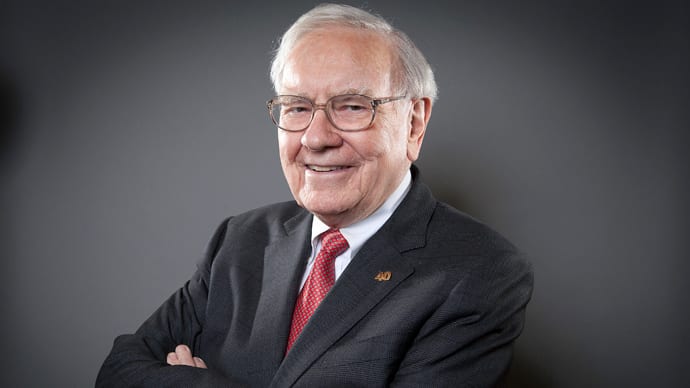26 Feb , 2024 By : Debdeep Gupta

Warren Buffett reminds us of Charlie Munger's greatest investment advice
After Buffett got control of Berkshire, Munger advised him to "add to it wonderful businesses purchased at fair prices and give up buying fair businesses at wonderful prices". This approach that embraced paying up for the right high-quality companies (including, today, a massive stake in Apple Inc.) has worked well for many investors
The Warren Buffett philosophy was never an immutable doctrine frozen in time. In his first shareholder letter after the death of his late, great partner Charlie Munger last November, the Oracle of Omaha reminded investors how important it is to change with the circumstances (emphasis mine):
...Charlie, in 1965, promptly advised me: “Warren, forget about ever buying another company like Berkshire. But now that you control Berkshire, add to it wonderful businesses purchased at fair prices and give up buying fair businesses at wonderful prices. In other words, abandon everything you learned from your hero, Ben Graham. It works but only when practiced at a small scale.” With much back-sliding, I subsequently followed his instructions...
...In reality, Charlie was the “architect” of the present Berkshire, and I acted as the “general contractor” to carry out the day-by-day construction of his vision.
Buffett has told versions of this story before, but it’s an important parable for a market that’s in the midst of seismic changes. Traditionally conceived, value investing has gotten crushed by growth-driven approaches for some 15 years, leading some underperforming managers to lash out and declare that something must be amiss — and maybe they’re right. The triumph of growth and momentum has also increased the influence of the so-called Magnificent Seven mega-capitalization growth stocks, fanning concerns about their sway over the benchmark S&P 500 Index.
But the job of any investor is to figure out how to thrive no matter the circumstances, not complain about them. That’s what Munger and Buffett understood when they allowed their firm to migrate away from pure “cigar-butt” value investing in the mold of Ben Graham toward an approach that embraced paying up for the right high-quality companies (including, today, a massive stake in Apple Inc).
The Buffett-Munger anecdote is not unlike another that I heard recently from Greenlight Capital President David Einhorn, another legendary value investor, who spoke on my colleague Barry Ritholtz’s Masters in Business podcast.
Einhorn attracted significant attention for saying that the rise of index-tracking funds had left markets “fundamentally broken” — with price discovery busted and traditional value investors suffering collateral damage. But what was most useful was hearing how he had adapted, instead of just grabbing the nearest soapbox and whining about it. In his case, he swerved in a different direction from Buffett (deeper into value, you might say) but he made it work nevertheless.
Here’s Einhorn (emphasis mine):
It took us a little time to figure out what the dynamic was.
... We’re not going to buy something at 10 times earnings thinking the earnings are going to be 15 percent better and then think we’re going to get a 13 multiple at the end of that and have made 50 percent over a year and a half. Like, that was our old way of doing it...
...There’s just nobody who’s going to pay attention to notice that the earnings were 15 percent better. So if nobody notices, nobody’s there, nobody’s going to buy, nobody’s going to care... what’s been created is there’s complete apathy in a certain segment of the market, and you no longer have to pay 10 times earnings for that type of a situation... we can find that same type of situation right now at four times earnings and at five times earnings. And if you pay four or five times earnings and the balance sheet is not levered, and they’re able to return the cash and buy back 10 percent, 15 percent, 20 percent of the stock, in four or five years they’re going to run out of stock or the stock is going to go up. So you’re counting on the companies to make that happen for you.
In a way, I think it’s become more tempting than ever to identify as a specific kind of investor. Even retail investors have access to oodles of hyper-specific strategies, including value, growth, and countless thematics such as artificial intelligence and clean energy. Certainly, there’s value in having strong principles and developing subject-matter expertise. However, the market is constantly in flux and introducing new challenges (including, in Berkshire Hathaway Inc.’s case at the moment, an environment that’s devoid of great opportunities to deploy its record cash pile).
The lessons of Buffett and Einhorn suggest that the ability to change with the circumstances is critical to long-term survival. It also helps if you have a principled and opinionated partner like Charlie Munger to keep you from getting too cozy with the status quo.
0 Comment